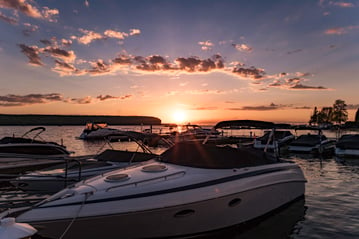 As more and more people are renting instead of buying properties, the topic of renter’s insurance comes up more frequently. I don’t have a lot of stuff, do I really need it? What does it cover? Is it expensive? Doesn’t my landlord’s policy cover me? These are all frequent questions that come up when thinking about getting a policy.
As more and more people are renting instead of buying properties, the topic of renter’s insurance comes up more frequently. I don’t have a lot of stuff, do I really need it? What does it cover? Is it expensive? Doesn’t my landlord’s policy cover me? These are all frequent questions that come up when thinking about getting a policy.
I don’t have a lot of stuff, do I really need it? What does it cover?
Regardless the amount of items you own, there are other important parts of having a renter’s policy. Even if you think you could afford to replace every item you own out of pocket, there are other very important coverages in a renter’s policy.
The three big parts of the policy are—personal property, liability and loss of use. Most people simply think of the personal property, but that’s just a fraction of the coverage provided.
Personal Property
This includes all of your belongings - clothes, furniture, kitchen items, etc. Any items that you own would be covered up to the limit that you have chosen. A really important thing to check is if your contents are being insured at Replacement Cost vs Actual Cash Value. If your items are insured at Actual Cash Value, you will receive the depreciated value of your items, i.e. rummage sale prices. Paying a few dollars extra to receive Replacement Cost on your personal property is worth it as your insurance company will pay what it costs brand new. In the event of a loss, an average renter could easily have between $20,000-$30,000 of damaged personal property.
Example: Think about that old couch you’ve had for years. How much would that be worth at a rummage sale? $30? That’s probably what you would get for it at Actual Cash Value. How much does a brand new couch cost? Anywhere from $500 and upwards? Replacement Cost coverage would pay for the brand new couch. Imagine trying to replace all of the items in your apartment with a fraction of what it costs to buy new ones. Which option do you want in the event of a loss?
Personal Liability
This is a very important part of the policy. This would provide coverage for any damages that you cause or any bodily injury that may occur in your apartment. Even though you don’t intend to cause damages, accidents do happen and could be financially detrimental without insurance.
Example: If you left a candle burning and it burned your apartment and neighboring complexes — unfortunately you would be responsible for the damages. For one simple mistake, you could end up owing hundreds of thousands of dollars for all the damages that are done.
Loss of Use
This coverage provides a place to stay if something happens to your apartment and makes it unlivable. Your insurance company will pay for you to stay somewhere comparable to where you were living. In addition, they will pay for expenses you incur, such as going to a laundromat and meals you may have to eat out.
Example: Apartment fires can happen for a variety of reasons and can spread very quickly. Even if your apartment isn’t burned, it may still have a lot of smoke damage, causing it to be unlivable. Where are you going to go? It could take a month or more to get everything cleaned up. Without renter’s insurance, you’re going to have to pay for a hotel, stay with a friend, or even rent a new place to live—all on your dollar. A renter’s policy will find you a place to stay and pay for it up to the limit noted on your policy.
How much does it cost?
Renter’s policies vary in price depending on the coverage amounts you choose. The typical price would be cost of one take out meal per month ($10-15). You can even get your renter’s policy for much cheaper if you bundle it with your auto insurance carrier.
Does my landlord’s policy cover me?
Most landlord’s policies are built to only cover the building itself, not the tenants belongings. Even if the landlord’s policy covers the building, if you were to cause damage to it, you would still be held responsible. The landlord’s insurance company would come after you for the monetary damages. Without having a renter’s policy, you would be responsible.
Renter’s policies are recommended for anyone who is renting, but if you are still unsure or have more questions, please contact your Knowledgebroker.
 Have you thought about renting a boat on a hot summer day? Do you own a boat and want to make some extra money by renting it out? If the answer is “yes,” there are a few things you need to know first.
Have you thought about renting a boat on a hot summer day? Do you own a boat and want to make some extra money by renting it out? If the answer is “yes,” there are a few things you need to know first.
 As more and more people are renting instead of buying properties, the topic of renter’s insurance comes up more frequently. I don’t have a lot of stuff, do I really need it? What does it cover? Is it expensive? Doesn’t my landlord’s policy cover me? These are all frequent questions that come up when thinking about getting a policy.
As more and more people are renting instead of buying properties, the topic of renter’s insurance comes up more frequently. I don’t have a lot of stuff, do I really need it? What does it cover? Is it expensive? Doesn’t my landlord’s policy cover me? These are all frequent questions that come up when thinking about getting a policy.
